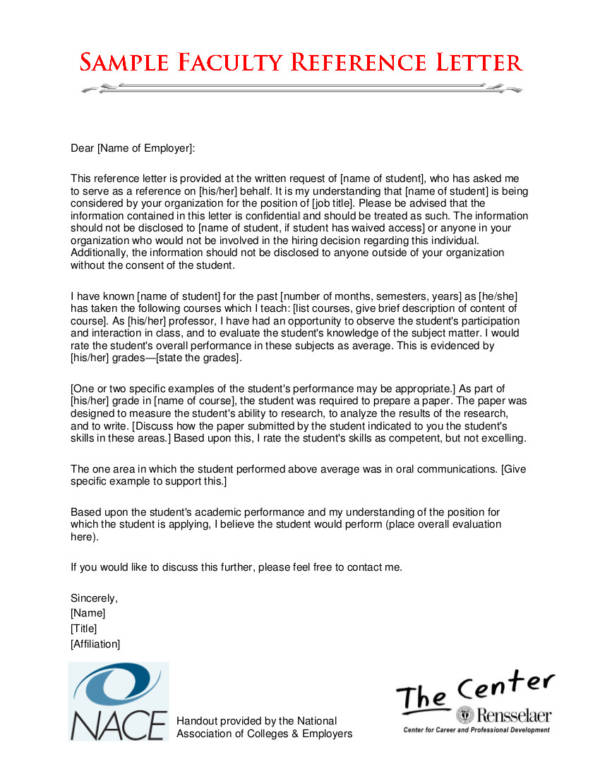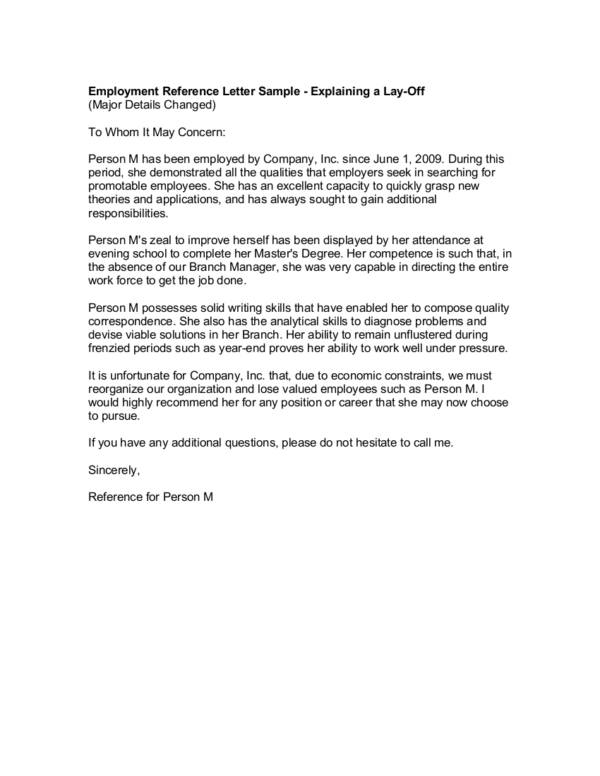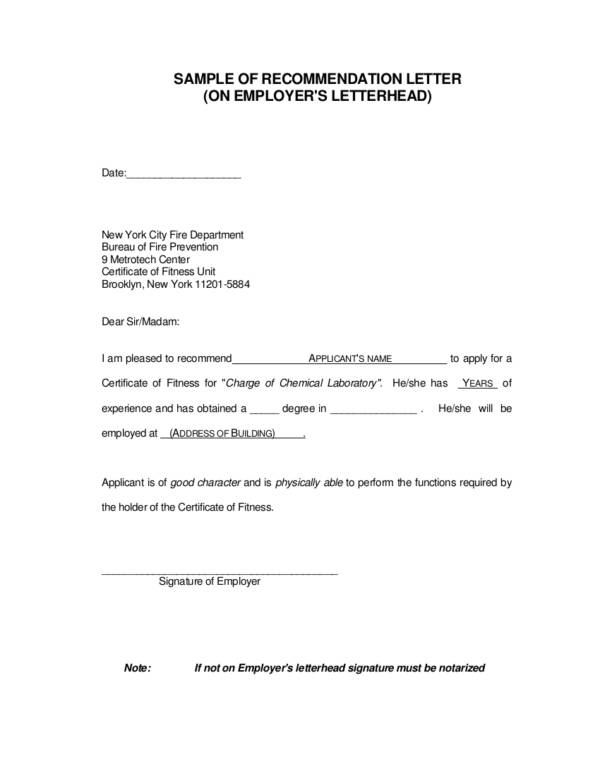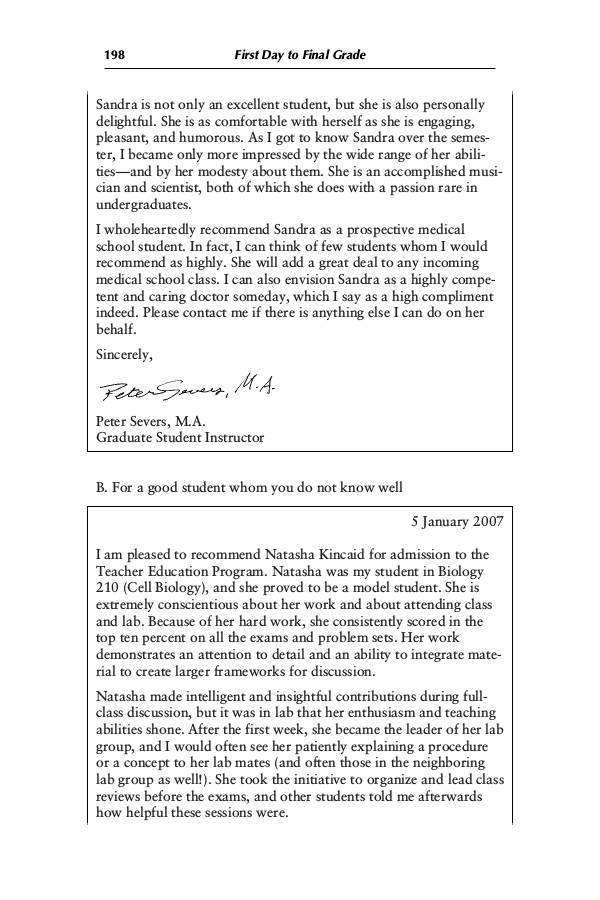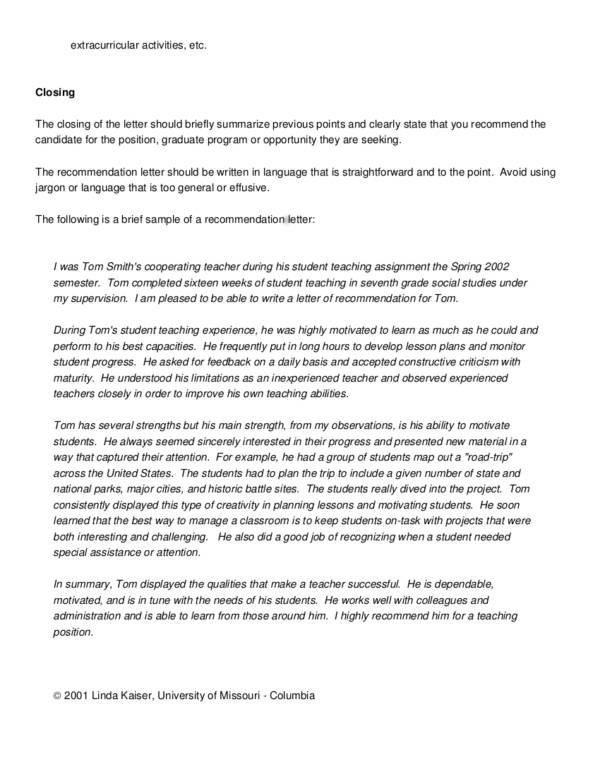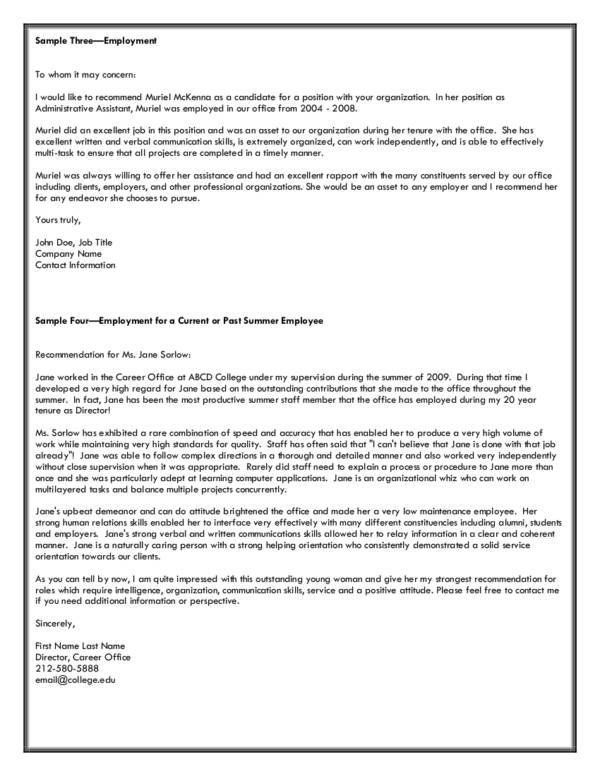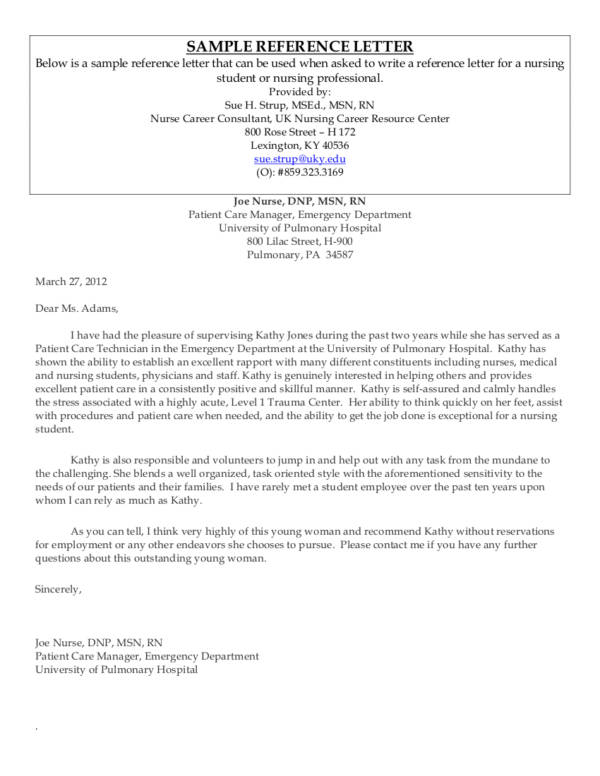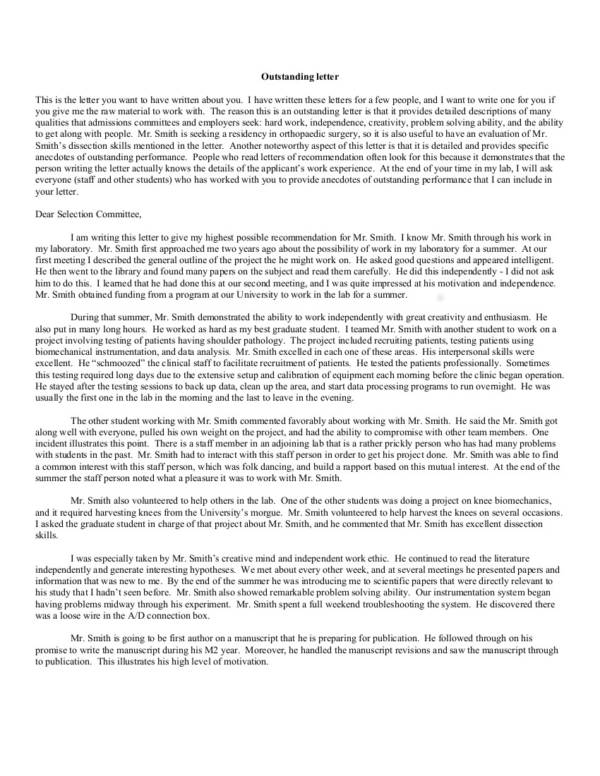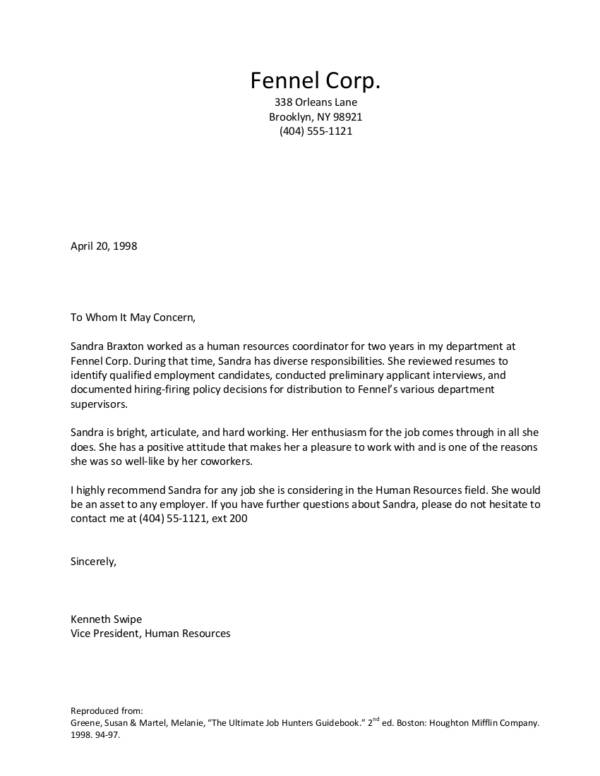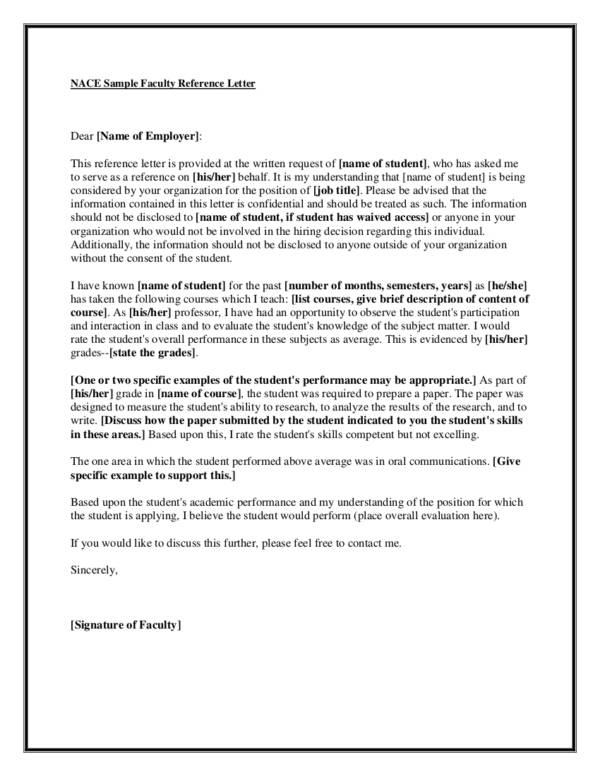Are you a professor who has just received a call from one of your finest students requesting you to put in a good word to the university that he/she is planning to study in? Or perhaps you are an employer who is asked by a former employee to write a recommendation letter on his/her behalf? Indeed, being in a position of authority sometimes means that there will be moments when you are morally required to draft a recommendation letter on behalf of those whom you have previously managed, taught, or worked with.
Recommendation letters are valuable tools for applicants. When done properly, it helps them obtain approval from the entities that are reviewing their applications. In fact, those applicants who have little to no amount of dazzling experience and academic achievements in their repertoires are the ones who rely the most on the power of strong recommendation letters. Writing a recommendation letter is an immensely crucial task.
Letter of Recommendation Template Sample
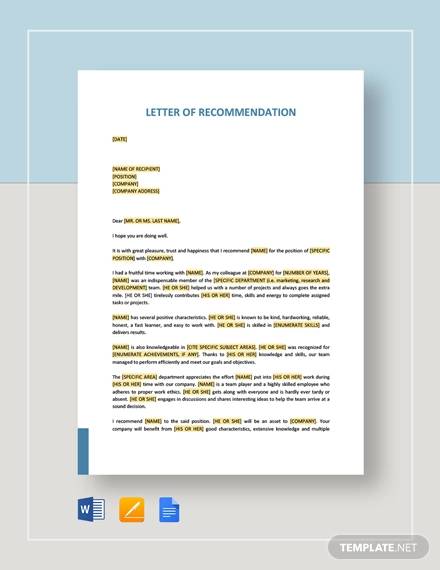
Offer Letter of Recommendation Template Sample
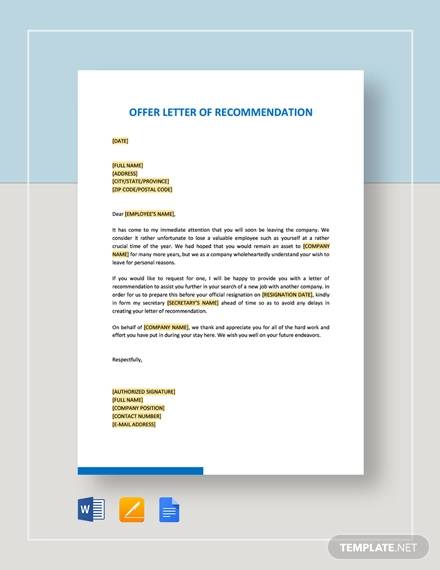
If you have agreed to write one, then you must make sure that you are able to write a recommendation letter that succinctly persuades its reader or recipient. If you need any help in writing an effective recommendation letter, then you may use our templates on this page.
Refusal of Request for Letter of Recommendation Template
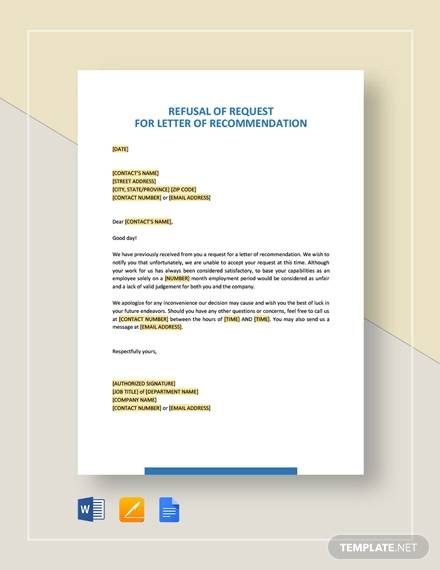
Verification of Employment and Letter of Recommendation Template
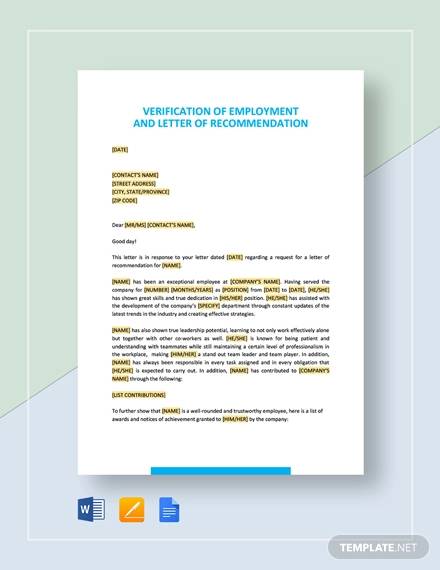
Confirmation of Employment and Letter of Recommendation Template Sample
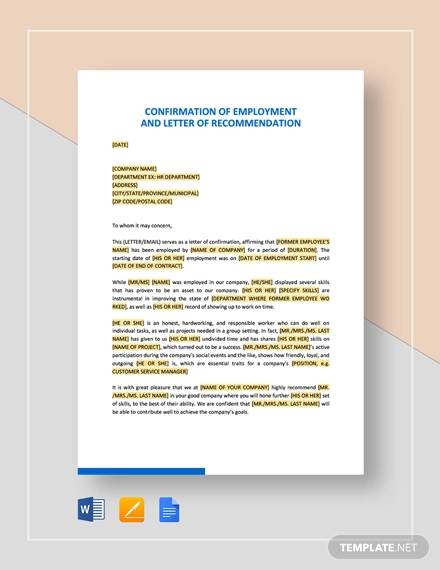
A Tactful Way to Decline to Write a Letter of Recommendation Template
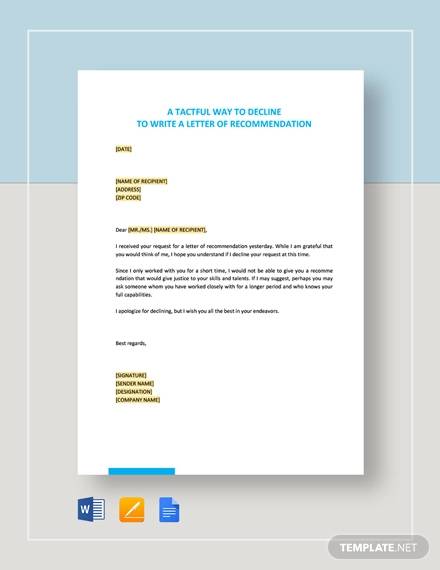
Restaurant Employee Personal Recommendation Letter Sample
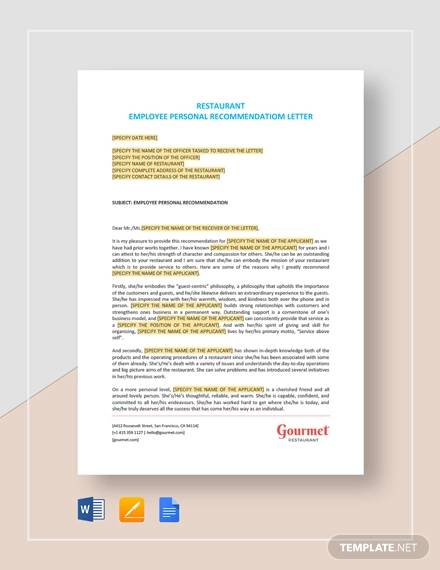
These templates can help guide you in writing it according to a proper format. Furthermore, this article also seeks to scrape away some of the cobwebs of doubt and confusion in your mind on how an effective recommendation letter should be written. What are you waiting for? Read on below and download our templates now!
Sample Faculty Recommendation Letter
Recommendation Letter Explaining a Lay-Off
Sample Past Employer Recommendation Letter
Post-Graduate Admissions Recommendation Letter
Teaching Position Recommendation Letter
What Are the Characteristics of a Good Recommendation Letter?
Now, it is a no-brainer that you are here reading this article looking for insightful ideas that can actually help you in writing a recommendation letter. Before you can dive into the process of writing, it would be helpful to know the basic characteristics of a recommendation letter. Knowing the characteristics of an effective recommendation letter sets your mind in the right direction when writing. You would become more mindful of the tone and the content you incorporate in your letter. Below are the essential characteristics of an effective recommendation letter:
- It has the power to capture the attention of its readers.
- Most admissions officers and hiring managers who are the usual audiences of recommendation letters are busybodies. This means that they would hardly have the time and energy to go through each recommendation letter in a thorough manner. The most efficient way for them to assess whether or not a recommendation letter is worthy of a full-reading is by scanning its contents. It is for this reason that your first sentences must be straight to the point and at the same time interesting. Now, in order to pique the interest of your recipient, you must have a clear idea of what qualities they are looking for in a candidate or applicant. This is why prior research is extremely important when writing recommendation letters. You have to make sure that you emphasize the qualities that are valued by the recipient entity’s standards and organizational culture.
- It retains the focus of the reader.
- Capturing a reader’s attention is one thing, but the key to any form of persuasion is to keep hold of the reins moments after ensnaring the attention of one’s audience. That is why a good recommendation letter must be easy to read and its flow of thought must run in a smooth manner. This makes it easier for your readers to look forward to reading your letter up to the end.
- To do this, your recommendation letter must also give the appearance of authority and objectivity by avoiding exaggerations and even mentioning the areas where the applicant can still improve on.
- It targets its reader’s needs.
- This characteristic of a good recommendation letter is the foundation for other characteristics. No matter how smoothly the narrative of your content may sound, it would not hold any ground if it does not answer to what the recipient is looking for. That is why it cannot be stressed more profoundly how important it is to acquaint yourself of the hiring manager, admissions officer, or any entity that is going read your recommendation letter.
- Its claims are sound and credible.
- You must be able to present a believable account that gives the recipient a reason why your claims about the applicant must be taken seriously. One thing you must remember when writing a recommendation letter is that it is not enough that you spout positive words about the applicant, but most of all, your words must be believable. To learn how to make your claims sound credible, read our discussions below.
Sample Academic Recommendation Letter
Student Employee Recommendation Letter
Guidelines in Writing a Good Recommendation Letter
Are you new to writing recommendation letters? Then you have come to the right place! Whether you are about to write a job recommendation letter, a scholarship recommendation letter, or an academic recommedation letter, you can definitely benefit from following the guidelines outlined below can help you show you the basics of writing a recommendation letter:
- The Heading – This part contains the return address, the sender’s details such as name and contact details. This usually consist of 2–3 lines. At the bottom part, the date when the letter is to be sent must be inputted.
- The Inside Address – This is where you write the complete name of the recipient, his/her position title, the name of the company or institution that he/she is affiliated, his/her address, and contact information. You may also opt to include their e-mail address if you are sending your letter electronically.
- The Greeting – Sometimes known as the salutation. This part is where you greet your recipient by addressing them using their complete name or their surnames. You must also be careful in using the appropriate title (e.g., Dear Ms/ Dear Mr./ Dear Mrs./ Dear Atty./ Dear Dean). You must avoid addressing them in general terms such as:
- “To Whom It May Concern”
- “Dear University Administrator”
- “Dear Dean of the College of Arts”
- “Dear Chief Executive Officer”
As tempting as it may seem to use general titles, avoid doing it at all costs because your recipient would feel slighted or, worse, they would think that you are not that enthusiastic about your recommendation as you did not even take the time to know the name of your recipient.
- The Body – Dedicate the first sentence by introducing yourself and explaining how you know the applicant. You may narrate your most memorable impression of the applicant during your first few interactions with him/her. This is important as this serves as the foundation of your narrative—you may opt to support your first impression or oppose it when you discuss how the applicant turned out to be when you came to know more of him/her. Then, enumerate the skills, achievements, and characteristics that you honestly think that the applicant possesses. Always put emphasis on those that are congruent to the requirements of the position or slot being applied by the applicant. Provide examples of how the applicant has shown these traits and skills that you have mentioned. Conclude the body of your letter by expressing your willingness to entertain further inquiries regarding the applicant’s qualifications.
- The Closing Remark – Politely close your letter then sign off your name.
University Admissions Recommendation Letter
Sample Job Recommendation Letter
Employment Recommendation Letter from Previous Professor
Pointers in Writing a Good Recommendation Letter
Since you already know the basics of writing a recommendation letter, here are some additional pointers you can follow if you are set on writing an effective recommendation letter:
- Know the purpose of your recommendation letter. Are you writing it for the purpose of helping a student get accepted in a school program? For a job applicant? Or perhaps you are helping a student get a scholarship grant from a charitable institution?
- Identify your target audience. For instance, if you are going to send your letter to a university admissions officer, then you must strive to know the standards of the educational institution as well as the characteristics that they are looking for in their students. In the same way, if you are writing to a hiring manager, then gather information regarding the company culture and its standards. It is also best to read the job description of the position that your applicant is planning to apply.
- Get to know the person you are recommending. You cannot simply rely on your memory of the person to write a good recommendation letter. It also helps you to write an objective account if you know the person better so set up a one-on-one session with this person. To avoid wasting both of your time, you can prepare questions beforehand or create an outline of aspects about the person that you want to know about.
- Before sending your letter, ask other people to review it. Sometimes, our minds tend to get clouded and biased when assessing our own work. That is why it is best for you to ask someone who is well equipped with sufficient professional knowledge on how recommendation letters should look like so that they may give you an objective critique.
- After having your letter reviewed, edit it cautiously. Then check for grammatical and spelling errors.
- Lastly, if you are genuinely hesitant in writing a recommendation letter, then you need to make the person aware of your discomfort. Politely discuss this with him/her so that he/she would know which course of action to take. You would never know, during your discussion, you may change your mind about the person and hence, erase the source of your hesitation.
Related Posts
Resignation Letter for Medical Samples & Templates
Letter of Intent Samples & Templates
Letter of Intent for a Job Samples & Templates
Lease Proposal Letter Samples & Templates
Letter of Inquiry Samples & Templates
Character Reference Letter Samples & Templates
Claims Letter Samples & Templates
Response Letter Sample & Templates
Follow Up Letter Samples & Templates
Sample Project Proposal Letter Templates
Donation Letter Samples & Templates
Addressing a Formal Letter Samples & Templates
Grievance Letter Samples & Templates
Sample Sponsor Thank You Letter Templates
Sample Letters of Request

